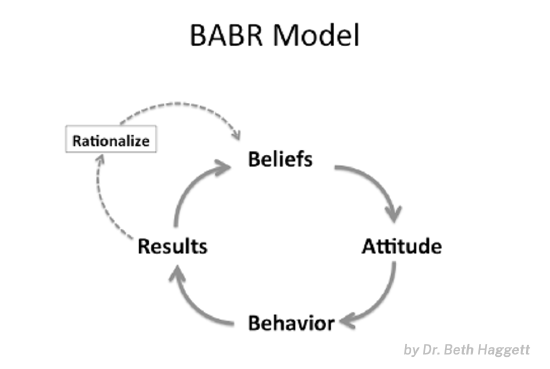How to Use This Resource
The skills leveraged and demonstrated throughout this resource are the five coaching or influence skills described by Dr. Beth Haggett in her KCS Coach Development workshop, a KCS Aligned service.
These include:
- Listening - to what is said and to what is unsaid. This takes place when the influencer is not talking.
- Inquiry - asking open-ended questions to understand where others are coming from.
- Reflection - making connections, clarifying assumptions and beliefs.
- Appreciation - recognizing (out loud) the strengths and contribution of others.
- Advocacy - we can advocate for people or ideas; often this is where we advocate for a different point of view. Using the four previous skills builds trust and creates an opportunity for us to offer new ideas and perspectives as part of a conversation (not as a way to point out the ways in which the doubter is wrong).
Each of the following pages on specific doubts is structured in the same way: a brief overview of the doubt, a list of possible beliefs behind the doubt, suggestions for discovering what the doubter believes, key points for responding to the doubt, available reference materials, and a sample scenario that outlines how a conversation might go.
Identify Underlying Beliefs
If we want to change someone's mind, we first have to understand what they believe. Doubts, misconceptions and objections are gifts badly wrapped; they give us insight into an individual’s point of view: their beliefs, what they understand, and more importantly what they don’t understand.
Understanding or exposing the belief(s) that lead a doubter to have their doubt creates an opportunity to offer a different point of view. Beliefs are often not recognized or stated explicitly by the doubter. The goal is to identify the underlying belief(s)
A change in beliefs is required to create a change in results. One way to think about this is represented by the BABR model : Beliefs influence Attitude, Attitude influences Behaviors, and Behaviors drive Results. To change the results, we have to understand the beliefs and offer a different way to think about things. Using influence skills is an effective way to expose the underlying belief(s). [The BABR model and the influence skills are from Dr Beth Haggett’s KCS Coach Development workshop and materials.]
: Beliefs influence Attitude, Attitude influences Behaviors, and Behaviors drive Results. To change the results, we have to understand the beliefs and offer a different way to think about things. Using influence skills is an effective way to expose the underlying belief(s). [The BABR model and the influence skills are from Dr Beth Haggett’s KCS Coach Development workshop and materials.]
Exposing underlying beliefs is critical in helping doubters think about things differently. We don’t change minds with one conversation. It is an iterative process.
Suggestions for Discovery
It takes curiosity, patience, and practice to expose underlying beliefs. Here are some ways to approach these conversations.
- Seek to understand before you seek to solve: “Tell me more about that”
- Meet them where they are with empathy: understanding a person's point of view is not the same as agreeing with it. Be curious about why a doubter feels the way they do.
- Recognize emotion-based versus logic-based objections. Most doubts or objections come from an emotional basis (fear, uncertainty, lack of trust). We cannot use logic to diffuse emotion or change a person’s point of view. We must diffuse the emotion before we can use logic.
- It is far more effective to invite people to join a change initiative than to tell them they have to. How we feel about the things we choose to do is way more positive than how we feel about the things we are told we have to do. If we can open people’s minds to a different perspective and help them understand why we want to do things in a different way as well as the benefit for them, we can then invite them to try a different approach.
- And always…..Ask before coaching.
- "Is now a good time?"
- "Can I share something that has worked for me?"
“Change that is imposed will be opposed.” - Spencer Johnson
General Reference Materials
A Note on the Sample Scenarios
The sample scenarios that follow provide examples of how a conversation might go and demonstrate the influencer skills. It is important to be really curious. We’re aiming to identify underlying beliefs so we can offer a different way of looking at things!
Each situation will vary and influencers will have to adjust their approach based on the situation. Listening and good judgment are required; the influencer needs to ask questions based on the situation. Asking people to explain their concerns by demonstrating how they do their work can be very insightful.
The influencer must tailor the conversation to how the organization has implemented the KCS Practices and techniques. The scenarios below are based on the examples in the KCS v6 Practices Guide. While the KCS Principles cannot be compromised, there are many different ways to implement the Practices and techniques.
